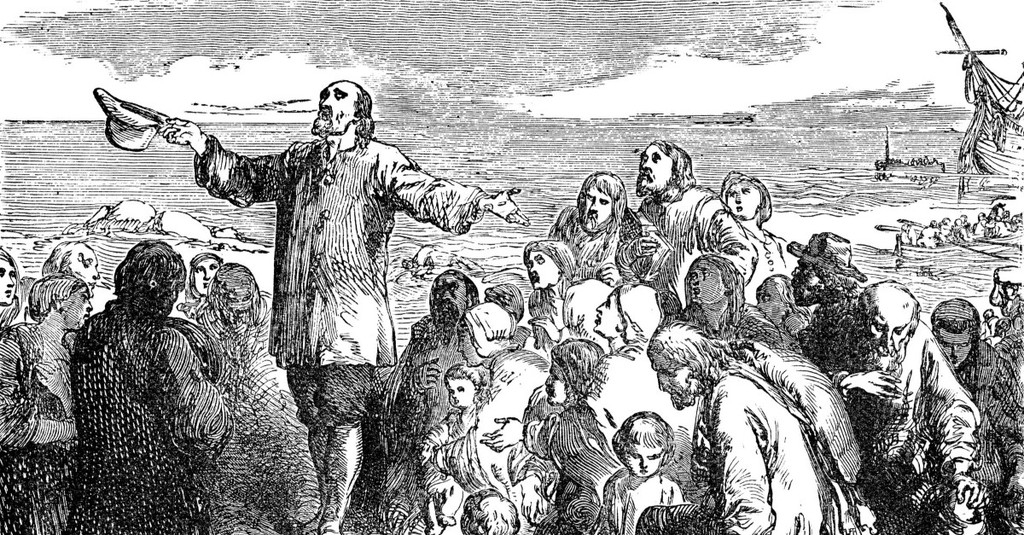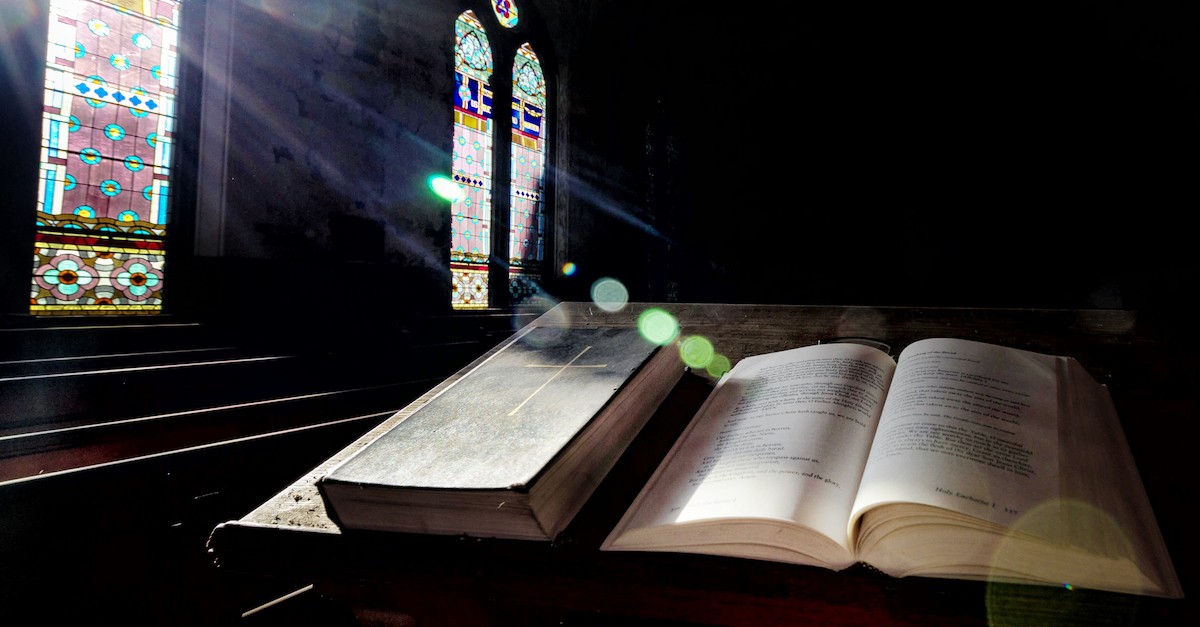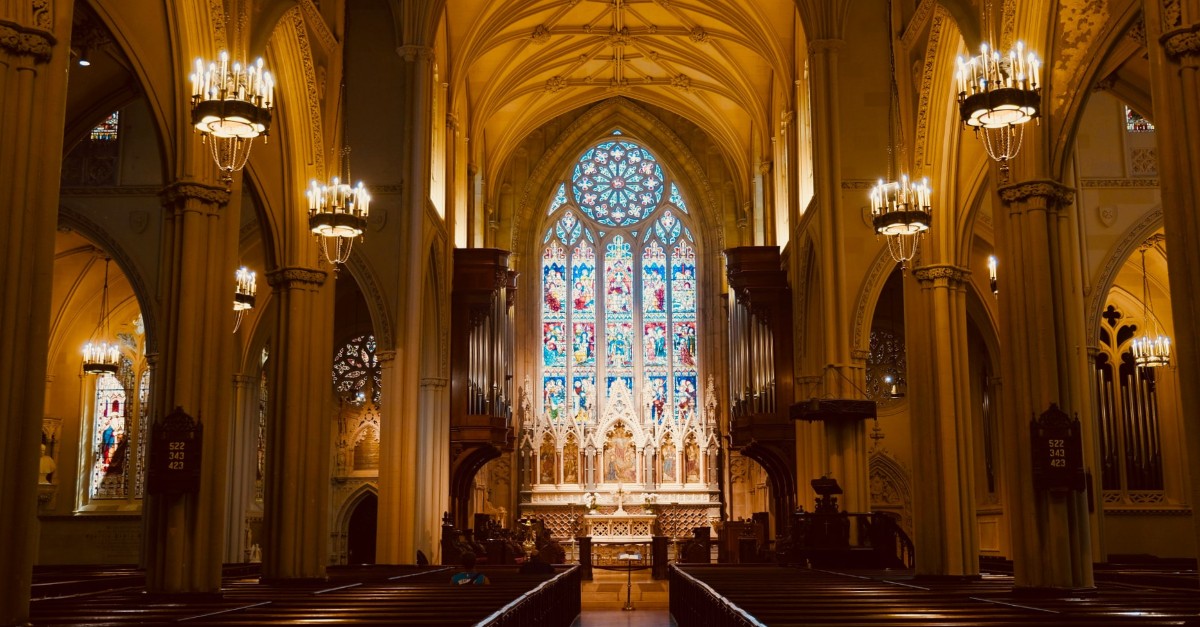
The origin of the Congregational Church goes back to the Puritan movement which began in 16th century England. At the time of this movement, the Puritans wanted separation from The Church of England, which was started by King Henry VIII when he broke away from The Roman Catholic Church. The Puritans rejected the hierarchy of priests and bishops and desired to have their own expression of worship. The Puritans believed that scripture was the ultimate authority rather than the Catholic Church or Church of England being the ultimate authority and that salvation comes by faith alone in Christ. This theological view was very controversial in the 16th century and caused the Puritans to face great persecution from different Anglican and Catholic communities.
The Puritans who came to found the Congregational churches in America fled England during persecution when Queen Elizabeth I ruled. Different Congregationalist churches spread throughout various parts of America, as well as Canada, the British Isles, and other parts of the world. The early Congregational churches spread widely after experiencing freedom in their worship. Many people who were discouraged by theological feuds and persecution came to join different Congregational church communities.
Puritans were, in turn, influenced by Protestant Reformation theologians such as Martin Luther, John Calvin, and Robert Browne. Browne, along with another Puritan, Robert Harrison, known as a "Separatist," founded the first illegal Congregational community sometime around 1581 after rejecting the theology of The Church of England. This first illegal community sowed the seed for what would become one of the largest Christian denominations worldwide.
Photo credit: ©Getty Images/TonyBaggett

Why is it Called the Congregational Church?
The Congregational Church is set apart from other denominations by its governing community. It is known as a "Congregational polity" because the Congregational Church governs its own affairs rather than being a church community governed by a diocese, bishop, or clergy.
Rather than having a head rector or priest as the shepherd leading the flock, the Congregational church believes that every brother and sister in Christ is part of the priesthood. This Congregational church is non-hierarchical, and this sets its community apart from mainstream Christian communities such as Anglican, Baptist, Orthodox, Episcopal, and Roman Catholic.
Photo credit: ©GettyImages/Robyn Hodgson / EyeEm

What Do Congregational Churches Believe?
Congregational churches believe that salvation comes through faith in Christ alone. This belief is held by many different branches of Protestant churches and, according to the Congregational church, was taught in the first-century early church communities. This belief of salvation by faith alone is a departure from the Catholic belief in salvation being available to people through the Mass of the Roman Catholic Church. In the Catholic belief, during the Mass, the bread and wine used in the Eucharist actually become the body and blood of Christ. In theological language, this is called transubstantiation.
This view of salvation by faith alone was proposed by Martin Luther during the beginning of the Protestant Reformation when he challenged the authority of the Roman Catholic Church after being frustrated with the corruption of theocrats in power who did not allow the everyday person to read the bible in the vernacular. Luther challenged the Catholic Church by nailing the ninety-five theses on the doors of the church in 1517.
Congregational Churches believe that the Bible is the inspired word of God and is thus the ultimate authority. This belief is called the doctrine of biblical inerrancy. The Catholic Church, as well as Orthodox churches, believe that the church is the ultimate authority since, in their view, it was founded by Christ. In contrast, Anglicans, as well as some Episcopal churches, do not believe in sola scriptura, but that Jesus himself is the Word of God and not the Bible. Throughout Christian history, people have debated over biblical inerrancy and biblical interpretation.
Even though the Congregational church rejected the Roman Catholic view of transubstantiation, most Congregational communities celebrate communion. Their view of communion is that when Christians partake in the bread and the wine, they are experiencing spiritual nourishment of a mystery that is a visible sign of invisible grace.
Photo credit: Unsplash/JohnyVino

What is Worship Like in a Congregational Church?
Instead of having a Mass as Catholics do, or Eucharist service as the Episcopal or Anglican church, the Congregational service structure involves having a time of prayer, a few hymns that are sung, and a sermon that is given with the aim of helping edify the people hoping to be given some spiritual nourishment from the Word of God.
Many Congregational churches throughout the world are involved in their communities. For example, in Scotland, the Auldhouse Community Church is involved in helping the poor, needy, and those struggling in their communities. This is what the early church did in the first century when they were spreading the good news of the gospel by their actions.
Photo credit: ©SparrowStock

How Does the Congregational Church Differ from Other Denominations?
The Baptist denomination of Christianity does not practice infant baptism. For Baptists, a baptism is undertaken as an outward sign of someone’s commitment to Christ after getting saved. Congregational churches practice infant baptism, though they differ in beliefs about it from Roman Catholics, Anglicans, and Episcopalians.
Congregational churches are exclusively ruled by their own community rather than by an established hierarchy such as in Baptist and Presbyterian churches. Congregational churches find the hierarchy to distract from embracing the Great Commission to make disciples of people from all nations.
Photo credit: ©Getty Images/Julie Ayers

Are Congregational Churches Still Active Today?
Congregationalist churches remain active today, continuing a rich tradition that began in the 16th century during the Protestant Reformation. While some Congregationalist churches are influenced by Reformed theology and align with Presbyterian groups, others reflect Lutheran practices or span across other denominations. The autonomy of each congregation remains a defining feature, fostering a diversity of worship styles and theological interpretations. Notably, large and thriving Congregational churches can be found in Samoa and Wales, where their impact on community and faith continues to flourish in unique cultural contexts.
Photo credit: ©SparrowStock

Should Christians Consider Attending a Congregational Church?
Since there are various types of Congregationalist churches, such as the Evangelical Association, United Church of Christ, and some Presbyterian churches, there are many good options for Christians who are looking for a denomination that aligns with biblically orthodox Christianity.
When choosing a particular church to call your spiritual home, it is important to pray about attending the church, get to know some of its members, and seek to find out if their theological beliefs align with the Bible. A church could very well be a good community of people, but if their beliefs contradict what is found in scripture, it could lead to theological confusion and a lack of spiritual growth. Finding a church that has sound theology and a reverence for the teaching of Scripture is immensely important on your own journey of faith.
Photo credit: ©Getty Images/Chuang Tzu Dreaming
Justin Wiggins is an author who works and lives in the primitive, majestic, beautiful mountains of North Carolina. He graduated with his Bachelor's in English Literature, with a focus on C.S. Lewis studies, from Montreat College in May 2018. His first book was Surprised by Agape, published by Grant Hudson of Clarendon House Publications. His second book, Surprised By Myth, was co-written with Grant Hudson and published in 2021. Many of his recent books (Marty & Irene, Tír na nÓg, Celtic Twilight, Celtic Song, Ragnarok, Celtic Dawn) are published by Steve Cawte of Impspired.
Wiggins has also had poems and other short pieces published by Clarendon House Publications, Sehnsucht: The C.S. Lewis Journal, and Sweetycat Press. Justin has a great zeal for life, work, community, writing, literature, art, pubs, bookstores, coffee shops, and for England, Scotland, and Ireland.
Originally published Wednesday, 22 January 2025.
